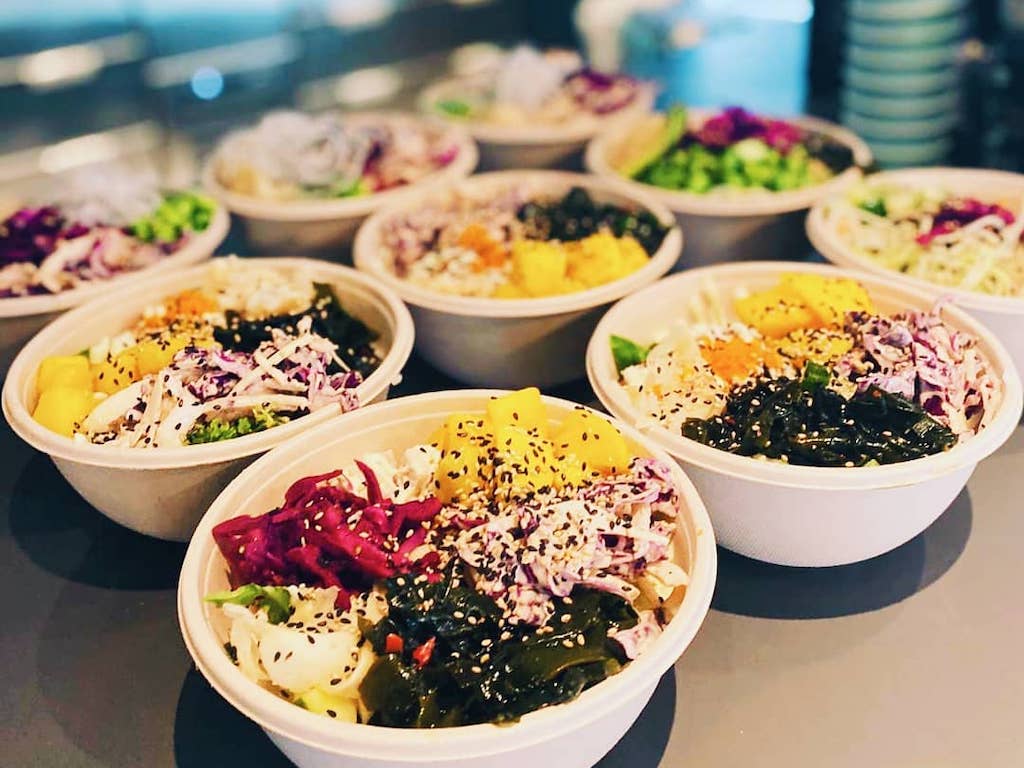3 Mins Read
Hooked, the Swedish food tech behind the world’s first plant-based shredded salmon, has just signed their first investor to launch their sustainable and vegan-friendly tuna product in the Nordic market. With their plant-based salmon in the final stages of development, the startup has set their sights on expanding across Europe to become the largest seafood alternative brand in the region.
Founded last year by Emil Wasteson & Tom Johansson, Stockholm-based food tech Hooked is now raising its first seed round and has secured €150,000 (US$175,800) in financing from its first investor Katapult Ocean, a sustainable ocean solutions accelerator based in Oslo. The capital will go towards Hooked’s launch in the Nordic market, starting with its plant-based tuna product made primarily from soy protein. Created through the use of wet extrusion, Hooked Toona also contains seaweed and algae oil to provide omega-3 fatty acids.
“Plant-based seafood is an upcoming megatrend. When interviewing startups this investment round, we have seen several exciting startups in this space. The Hooked team combines massive drive, passion and strategic focus,” said Jonas Skattum Svegaarden, CEO of Katapult Ocean. “They are here to make a change and we are proud to support their journey.”
The Swedish startup was recently selected to join Berlin-based ProVeg Incubator, which helps plant-based and cultivated food techs raise funding and develop products that will solve the challenges of the global food system, and says it is also in the final stages to launch Hooked Salmoon, their vegan-friendly shredded salmon.
Plant-based seafood is an upcoming megatrend. When interviewing startups this investment round, we have seen several exciting startups in this space. The Hooked team combines massive drive, passion and strategic focus. They are here to make a change and we are proud to support their journey.
Jonas Skattum Svegaarden, CEO of Katapult Ocean.
Together, salmon and tuna represent the two most consumed seafood products in Europe, the region that Hooked is eyeing major expansion and has set ambitions to become the biggest provider of sustainable vegan alternatives.
“We can make a significant impact, both for the planet, the marine ecosystem and human health. Already, [in] our first year we will save 1,000 tons of CO2 and save 50,000 salmons and tunas,” explained Hooked co-founder Wasteson.
Aside from accelerating the loss of ocean biodiversity at astonishing rates, with scientists predicting that we could be looking at little or no seafood available left in the ocean within 30 years time, the seafood industry is also linked to the global plastic pollution crisis. Ghost nets amount to 640,000 tonnes of waste across the ocean, which then are ingested by aquatic life, including the species commonly consumed by humans.
We can make a significant impact, both for the planet, the marine ecosystem and human health. Already, [in] our first year we will save 1,000 tons of CO2 and save 50,000 salmons and tunas.
Emil Wasteson, Co-Founder of Hooked
Hooked has already tested its first product with customers in the Nordics saying that its sustainable and ethical alternatives compete on taste and nutrition. Aaron Colman, founder of poké bowl chain Hawaii Poké in Stockholm, says that having tested different plant-based seafood alternatives, “none have come close to the quality that Hooked have crafted.”
“Their focus on product is second to none and with nutrition being at the cornerstone of their work, we cannot wait to launch their nutritious plant-based seafood, starting with Toona,” Colman added.
As the plant-based trend continues to grow, especially amid the coronavirus pandemic, other emerging startups and major food industry players alike are quickly hopping on the vegan seafood bandwagon. Good Catch, for instance, has created vegan tuna out of peas, chickpeas, soybeans and other pulses, and has recently opened up a 42,500 square foot facility to meet consumer demand. Quickly after, Nestlé entered into the seafood alternative market with its first ever plant-based tuna launched under its Europe-facing Garden Gourmet brand.
Meanwhile, San Francisco-based food tech Kuleana is developing sushi-grade plant-based fish alternatives, from bluefin tuna to salmon, and Legendary Vish is leveraging 3D printing technology to create different structured seafood analogues in a fillet format.
Lead image courtesy of Hawaii Poke.




